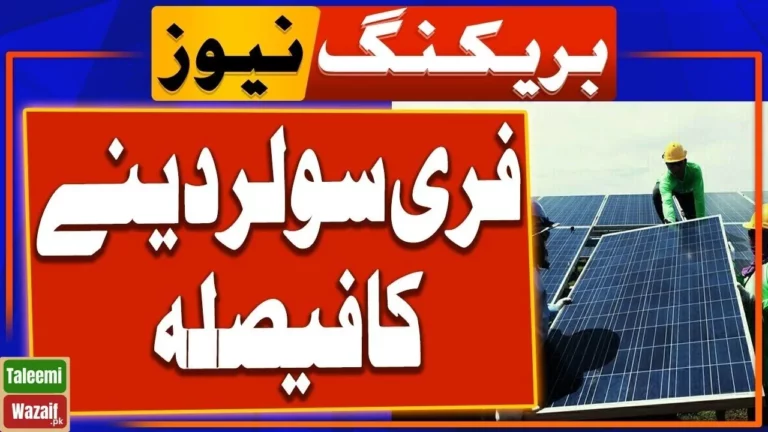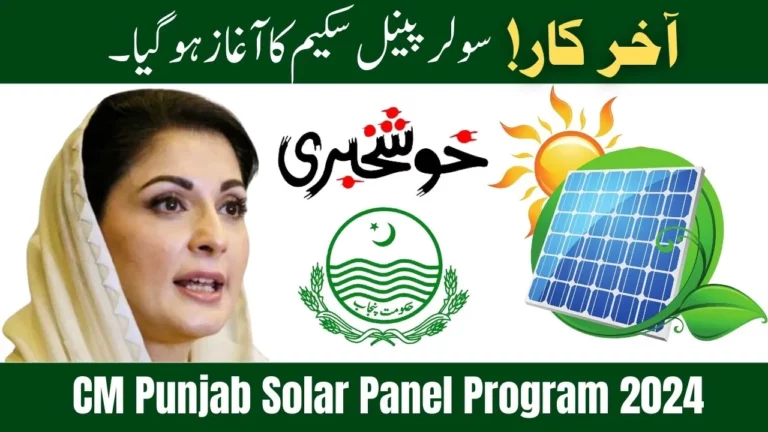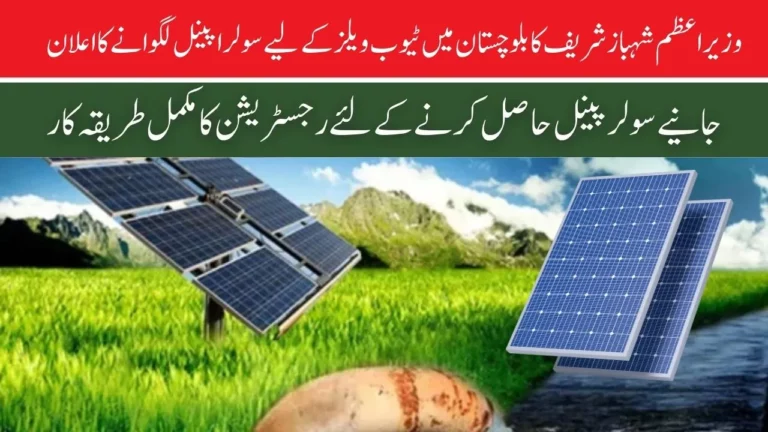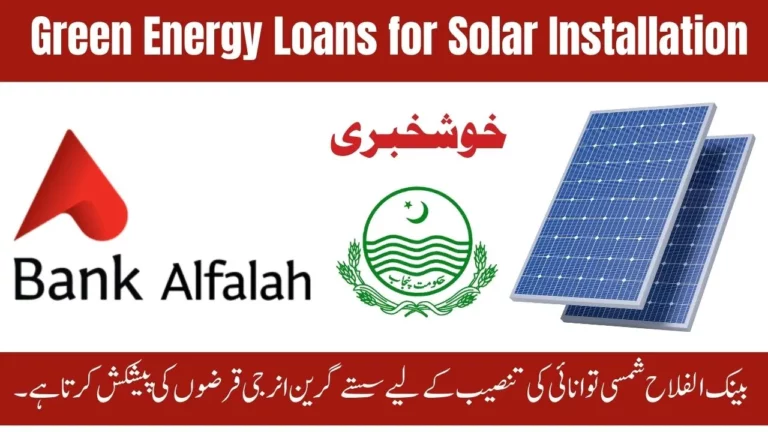Sindh Govt Introduced Free Solar Panel Systems for 2.6 Million Families
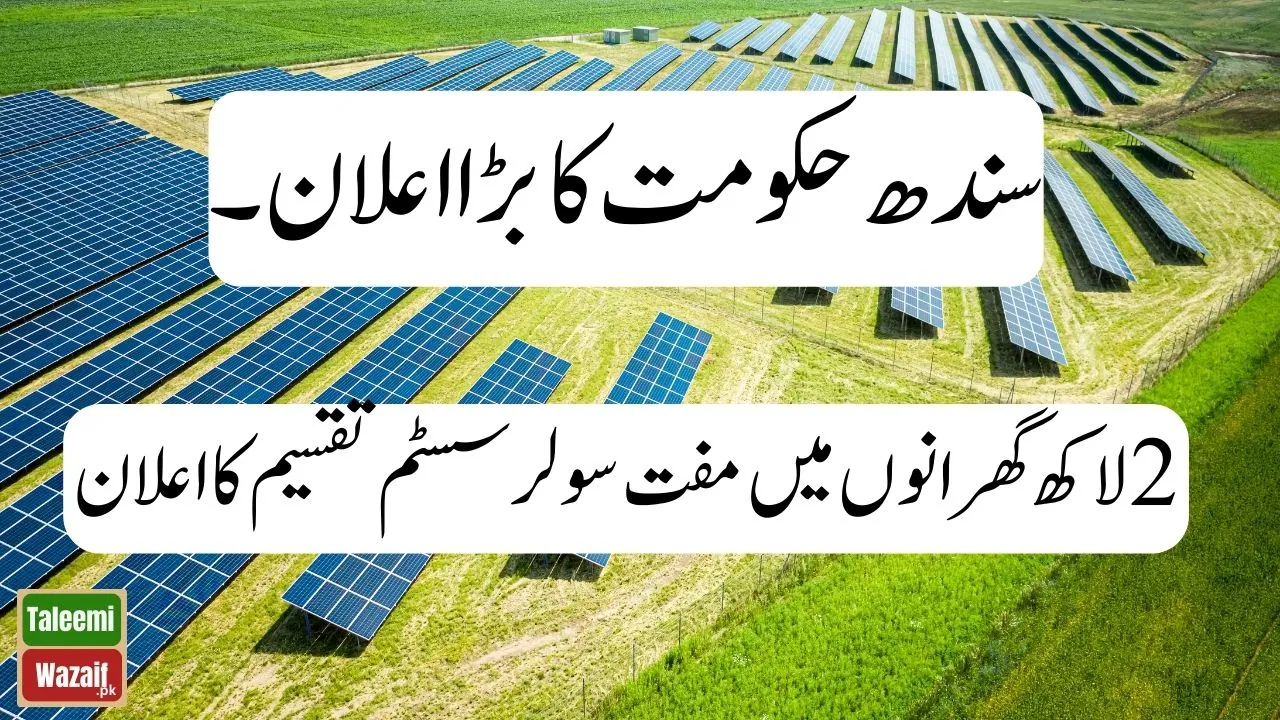
The Sindh government, in its 2024-25 budget, has introduced a fresh initiative to distribute free solar panel systems to 2.6 million families across the province. This ambitious plan aims to tackle the ongoing energy crisis and promote renewable energy sources, ensuring a sustainable future for the region.
Key Points:
- Free solar systems for 2.6 million families.
- Budget allocation of Rs 25 billion over five years.
- Additional Rs 5 billion for discounted solar panels.
- Establishment of solar parks and mini-grid stations.
- 100 units of free electricity for low-income households.
- Increased budget for various sectors, including education and health.
- Introduction of Mazdoor Card program for laborers.
Budget Allocation and Goals
The Sindh government has earmarked Rs 25 billion over the next five years to support the free solar panel initiative. This funding is part of a broader strategy to enhance the quality of life for residents by providing reliable and sustainable energy solutions. The initial phase of the program will focus on the distribution of solar systems capable of powering basic household appliances, such as fans and lights, to the most vulnerable families.
Addressing Energy Access Issues
The province of Sindh has been grappling with severe electricity shortages, affecting millions of households. The government’s new solar energy initiative aims to address these issues head-on by providing free solar systems to 2.6 million families. This move is expected to significantly reduce the region’s dependency on traditional electricity sources, which are often unreliable and expensive.
Solar Energy Projects and Infrastructure Development
In addition to providing free solar systems, the Sindh government has allocated Rs 5 billion for various solar energy projects. This includes the distribution of 200,000 discounted solar panels, where the government will cover 80% of the cost. These projects are designed to enhance electricity access for an additional 500,000 households across the province.
Furthermore, the government plans to establish solar parks and mini-grid stations in key areas, including Karachi. These facilities will play a crucial role in improving the overall energy infrastructure and ensuring a steady supply of electricity to residents.
Financial Relief for Low-Income Families
To further ease the financial burden on low-income families, the government has announced the provision of 100 units of free electricity per household. This measure is part of a broader effort to support vulnerable populations and ensure equitable access to basic utilities.
Comprehensive Budget for Development
The 2024-25 budget includes significant allocations for various sectors, aiming to promote holistic development across the province. Key areas of focus include education, health, agriculture, transport, and local government. The total budget outlay for Sindh is estimated at Rs 3.056 trillion, reflecting the government’s commitment to fostering sustainable growth and improving living standards.
Mazdoor Card Program
In a bid to support the labor force, the Sindh government has introduced the Mazdoor Card program. This initiative aims to provide various benefits to laborers, including financial assistance, healthcare services, and educational opportunities for their children. The program underscores the government’s dedication to enhancing the welfare of workers and promoting social equity.
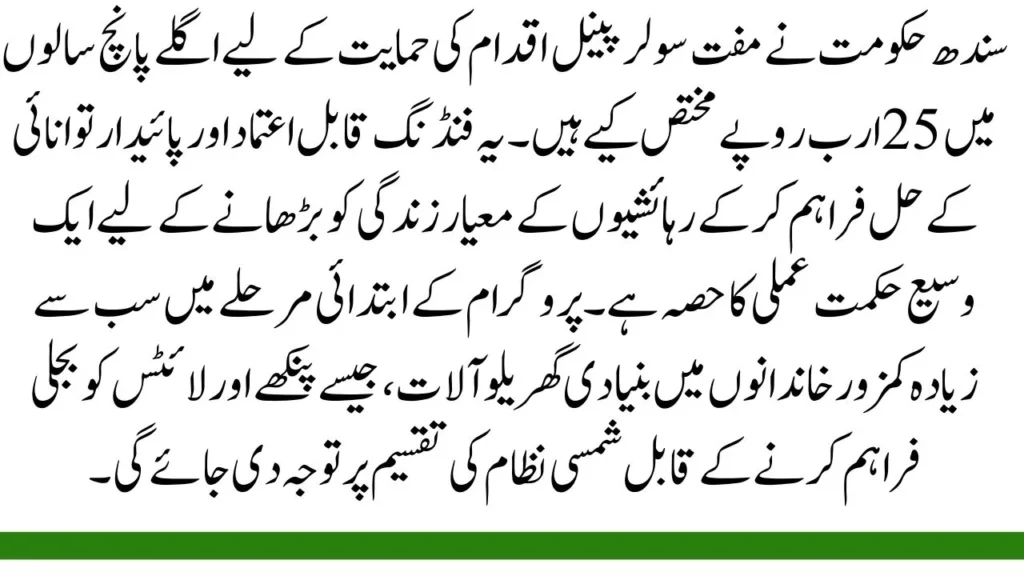
Political and Economic Context
The announcement of the free solar panel initiative comes at a time when the Sindh government is advocating for a fairer share of the federal budget. Senior officials have expressed concerns over historical injustices in budget allocations, calling for equitable distribution of resources to support regional development.
Despite these challenges, the Sindh government remains focused on its mission to improve the quality of life for its residents through innovative and sustainable solutions. The free solar panel initiative is a testament to this commitment, aiming to create a greener, more resilient future for the province.
Conclusion
The Sindh government’s decision to provide free solar panel systems to 2.6 million families marks a significant step towards addressing the region’s energy challenges. By promoting renewable energy sources and improving access to electricity, the government is working to create a more sustainable and equitable future for all residents. This initiative, coupled with other development programs, reflects the government’s dedication to fulfilling its promises and fostering long-term growth and prosperity.
Also Read: How to Apply for Punjab Green Tractor Scheme: Step-by-Step Registration Details 2024
FAQs
1. Who will receive the free solar panel systems?
The free solar panel systems will be distributed to 2.6 million families across Sindh, with a focus on the most vulnerable households lacking reliable access to electricity.
2. How is the Sindh government funding this initiative? The Sindh government has allocated Rs 25 billion over five years to support the free solar panel initiative. An additional Rs 5 billion has been earmarked for other solar energy projects, including discounted solar panels.
3. What other measures are included in the 2024-25 budget?
The budget includes significant allocations for various sectors such as education, health, agriculture, transport, and local government. It also introduces the Mazdoor Card program to support laborers, along with provisions for 100 units of free electricity for low-income families.
